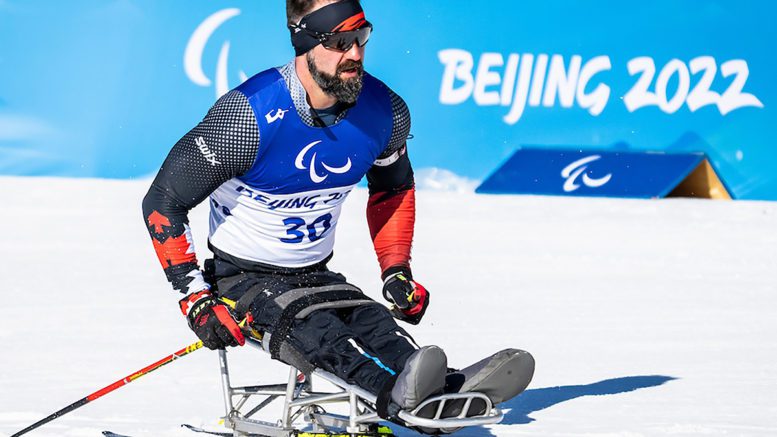Before realizing his dream, Collin Cameron needed a hero to believe that a once recreational league sledge hockey player could challenge athletes on the world stage.
One of Canada’s latest Olympic medalists researched accessible programs in Sudbury then contacted Patti Kitler, of the accessibility sports council, to enquire about para-sports, and also why the picture of a sit-ski on their website looked like indoor ice hockey slides.
Unbeknownst to Cameron, she was a renowned para-Nordic ski coach of more than 15 years.
“Within two days of sending that email, I was out roller skiing,” said Cameron, in a phone interview. “And on that very first day (of participating), she’s like, ‘Wow, you’re a natural at this.’ ”
Admittedly wet behind the ears, the now-34-year-old approached the sport cautiously until Kitler challenged him to challenge himself because she believed he had a future in the sport.
Cameron made the commitment based on her direction, catapulting him into a world he only realized in dreams.
“I had never been out of Ontario in my life, never been on an airplane, and all of a sudden, within a month I’m going up to Canmore (Alberta), to the mountains, to cross-country ski,” he said. “So yeah, I jumped all over that (opportunity) and next thing you know I’m in Europe.”
Cameron won two bronze medals at the 2022 Beijing Olympics and gained a new responsibility of role-model status.
He agrees fans with similar disabilities that play his sport may cross the finish line and yell ‘Collin,’ in the same way office waste-basketball pros say ‘Kobe,’ after banking it in. When reflecting on this, and Coach Kitler, he pointed to these as reasons why his future in sport will go beyond his playing career.
“You don’t have the confidence because you feel like, you can’t do it, or you’re too afraid, and I experienced this as a kid,” he said. “But if someone at home with a disability sees me on TV at the Paralympics and says, ‘I’d like to try that, it looks fun’; that’s what it’s all about, the power of sport. That’s the beauty of this (being a role-model).”
“A lot of that comes from Patti; just seeing the impact she’s had my life, and sporting life.”
For now, Cameron has plenty left in the tank and is looking beyond the next four years with hopes that the Olympics will return to North America.
While praising the media’s improved coverage of Paralympic sports now, he believes the culmination of the work to mainstream para-sport will reach new heights if it returns to western hemisphere time zones.
“I want to do this for at least another four years, if not eight; I’ll definitely have another four after this quad if we can get the Paralympics in Canada in 2030,” he said.

